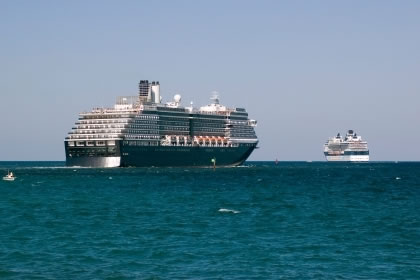Healthcare and Utilities in South Africa
Electricity:
Most of the hotels and larger lodges will offer an international 110v sockets for your appliances, but some places will just offer the standard South African plug which is a round pin plug 13 amp. South Africa operates using a 220-230v AC at a current of 50 Hz. Tourists can bring their own multi plug with and then have it fitted when arriving in South Africa so that you can use your own shavers, hairdryers and other appliances.
Water:
The tap water in South Africa is suitable and safe to drink, and the mineral composition is good in most areas except for certain informal settlements and shacks. Some people may find the mineral composition too rich for them and can experience some gastric disturbances for a day or two until you get used to it. Otherwise you can also find plenty of bottled mineral water at all shops and cafes. Sometimes you will notice that the water in mountain areas has a brownish color, but this is still safe to drink. The humic acid content in the mountain water gives it that color, although it has been cleaned through the proper methods. If you are at a lake or stream, especially downstream of a settlement, it is advised to not drink the water, as you may be prone to various waterbourne diseases. In certain areas of KwaZulu-Natal and the Wild Coast or very rural areas there have been outbreaks of cholera, so if you are going to these areas stock up on bottled water or purification tablets.
South African Health Care:
There are other diseases that you should be ware of when visiting South Africa. In certain parts of the country such as parts of the Kruger National Park, the lowveld of Mpumalanga, northern KwaZulu-Natal and Limpopo, you can be at risk of getting malaria. This is a treatable disease caused by being bitten by an anopheles mosquito. The best way to avoid this is to take prophylactics that can be recommended by your pharmacist or doctor before you arrive. Other precautions are to wear long sleeved light tops and pants with closed shoes after dark, use plenty of insect repellant and sleep under a mosquito net.
Bilharzia is also a common disease contracted mainly along the eastern rivers. It is a parasite that burrows through the skin and lays eggs in your intestines. Try to avoid swimming or canoeing in rivers or lakes where this parasite is present and if you have been exposed, be sure to get a check up. The symptoms are usually mild, the more advanced being blood in the stools or urine and it is treated easily.
Tick bite fever can be a problem in certain areas during the early spring, but is not very common and can be prevented by wearing proper clothing and closed shoes when hiking or entering the bushveld areas.
Inoculations for most illnesses are necessary for traveling here and if you have not received a TB, or hepatitis B vaccine, make sure you do this before you leave.
In certain areas in northern South Africa and into other Southern African countries, a yellow fever vaccine is also required.
South Africa has one of the highest HIV/AIDS rates in the world and every precaution should be taken if you decide to engage in any kind of sexual activity as you would anywhere in the world. You can get tested for HIV at any clinic, state hospital or doctor’s office.
If you do happen to become ill while in South Africa, there are plenty of highly qualified doctors at private clinics and hospitals all over the country. In rural areas a doctors’ office might be a bit further away in a more suburban town. While the public hospitals are usually very busy, the medical treatment you will receive is still of the best quality. Remember to take out a comprehensive medical and travel insurance when you come to South Africa that will also cover evacuations, bills, hospital stays and any surgeries. Some people even come to South Africa for a plastic surgery getaway.
